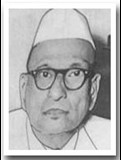Generalities
Saffron affects the NERVES and MIND, producing rapidly changing or alternating mental disposition; opposite to each other; anger with violence rapidly followed by abject repentance; laughter quickly followed by tears. Symptoms rapidly change sides, or mental and physical symptoms alternate. Jerking or spasmodic contraction of single sets of muscles. Chorea and hysteria. Chorea every seven days, with hilarity, singing and dancing. Prostration, weariness, fainting; with epistaxis, metrorrhagia. Drowsiness; better by literary occupation. Tingling, crawling, pricking and itching sensations. Sensation as if something alive were moving internally, in abdomen, chest etc.; with nausea, faintness and shivering; or jumping about, in various parts. HAEMORRHAGE_dark, viscid, clotting, forming itself into long black strings hanging from the bleeding orifice. Suitable to hysterical persons. Tumours. Lipoma. Encephaloma. Effects of blows.
Worse
Motion. Puberty. Pregnancy. Heat. Fasting. Lying down. Reading. During new and full moon. Looking fixedly.
Better
After breakfast. Open air. Yawning.
Mind
Impressionable; affectionate and moody. Vacillating. Changeable disposition. Laughing mania. Jumping, dancing, laughing, whistling, wants to kiss everybody. Sings on hearing a single note sung. Involuntary laughter and weeping; worse music.
Head
Throbbing, pulsating headache at climacteric period, during menses or instead of menses; better pressure.
Eyes
Dry, burning, as after weeping; as if cold air was rushing through eyes. Eyes feel as if smoke is in. Must wink and wipe the eyes frequently, as though a film of mucus were over them; must close eyes tightly. Sensation as if looking through sharp spectacles. Electric sparks or jumping spots before the eyes. Lachrymation when reading. Twitching of the upper eyelid.
Ears
Noises in ears with hardness of hearing, worse stooping.
Nose
Nosebleed; strings of dark blood hanging down the nose; with faintness and cold sweat on forehead. Epistaxis at puberty; of young girls.
Face
Hot, red or alternating with paleness.
Mouth
Unusual warmth in mouth. Sour taste. Foul odour.
Throat
Feeling as if uvula were elongated, during and when not swallowing; in hysteria. Feeling of nausea in throat and chest.
Male
Excitement of sexual desire.
Female
Menses; dark, foul and stringy. Threatened abortion. Uterine haemorrhage worse least movement; worse during full or new moon. Metrorrhagia. Jumping pain in left breast, as if drawn towards the back; as if jumping alive in right breast. False pregnancy. Movements of foetus are violent and painful.
Respiratory organs
Dry cough better laying the hand on the pit of the stomach. Expectoration stringy like thread. Heaviness in chest, must take deep breath.
Heart
Sensation of heat ascending to the heart impeding breathing better yawning. Dull stitches in the left chest. Palpitation, anxious worse ascending stairs.
Back
Sudden feeling of coldness, as if cold water were thrown over him.
Extremities
Cracking in hip joint and knees, worse stooping. Cold as ice; metrorrhagia, epistaxis.
Sleep
Deep sleep. Sings in sleep.
Fever
Flushes of internal heat, with prickling and crawling in skin. Sweat only on lower half of the body. Continuous foul smelling sweat, worse debility; haemorrhages after parturition.
Skin
Prickling and crawling. Scarlet redness or spots, on the skin; old cicatrices open and suppurate. Disperses tumours. Lipoma. Encephaloma.
Related
Ign; Tarent.
Stomach and Abdomen
Excessive thirst for cold drinks. Sensation as if something living were jumping about in the stomach and abdomen (left side). Stools contain dark stringy blood. Obstinate constipation; of infants. Crawling and stitches in the anus. Gastric troubles, bloatedness, eructations, vomiting etc. after operations for haemorrhoids.

